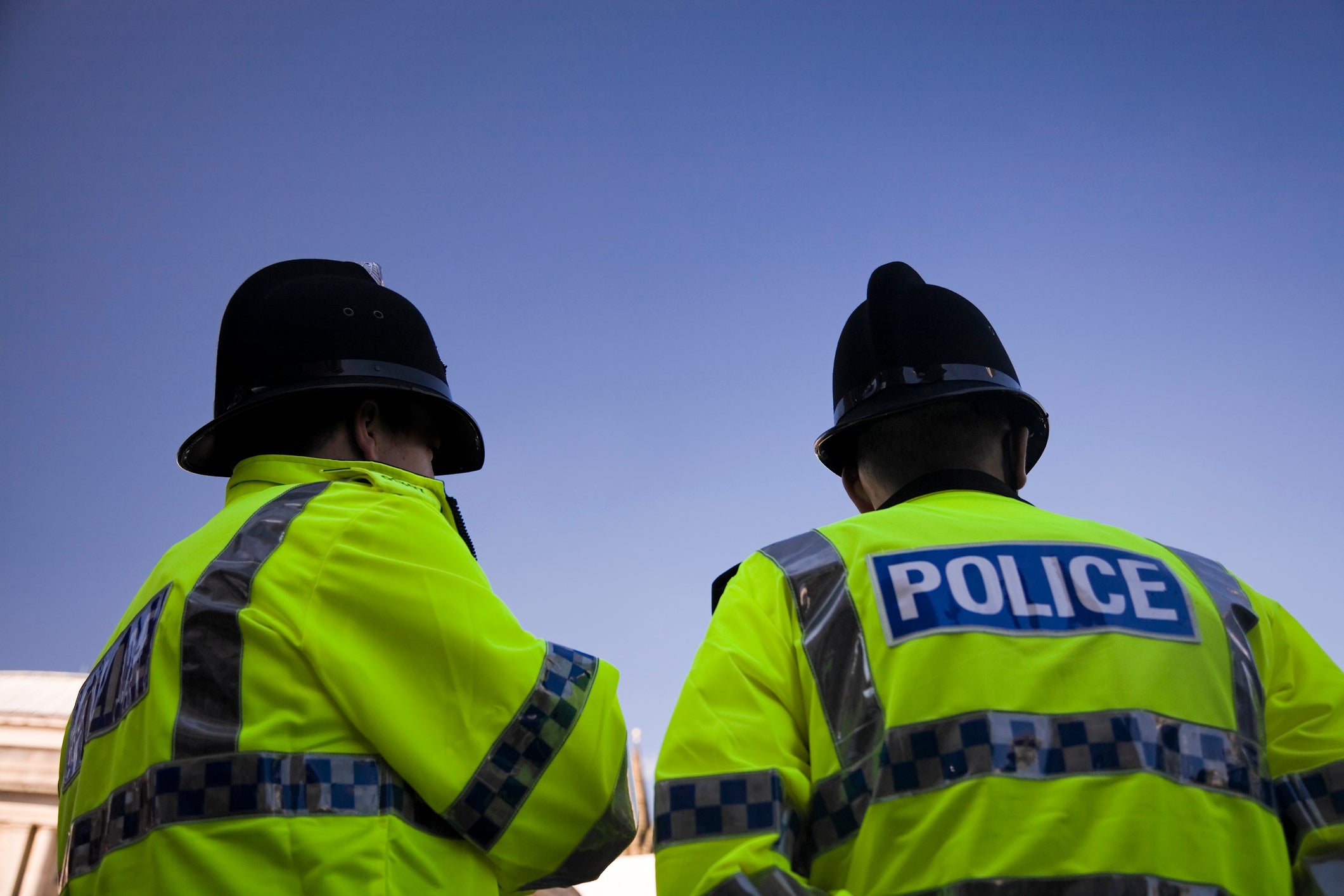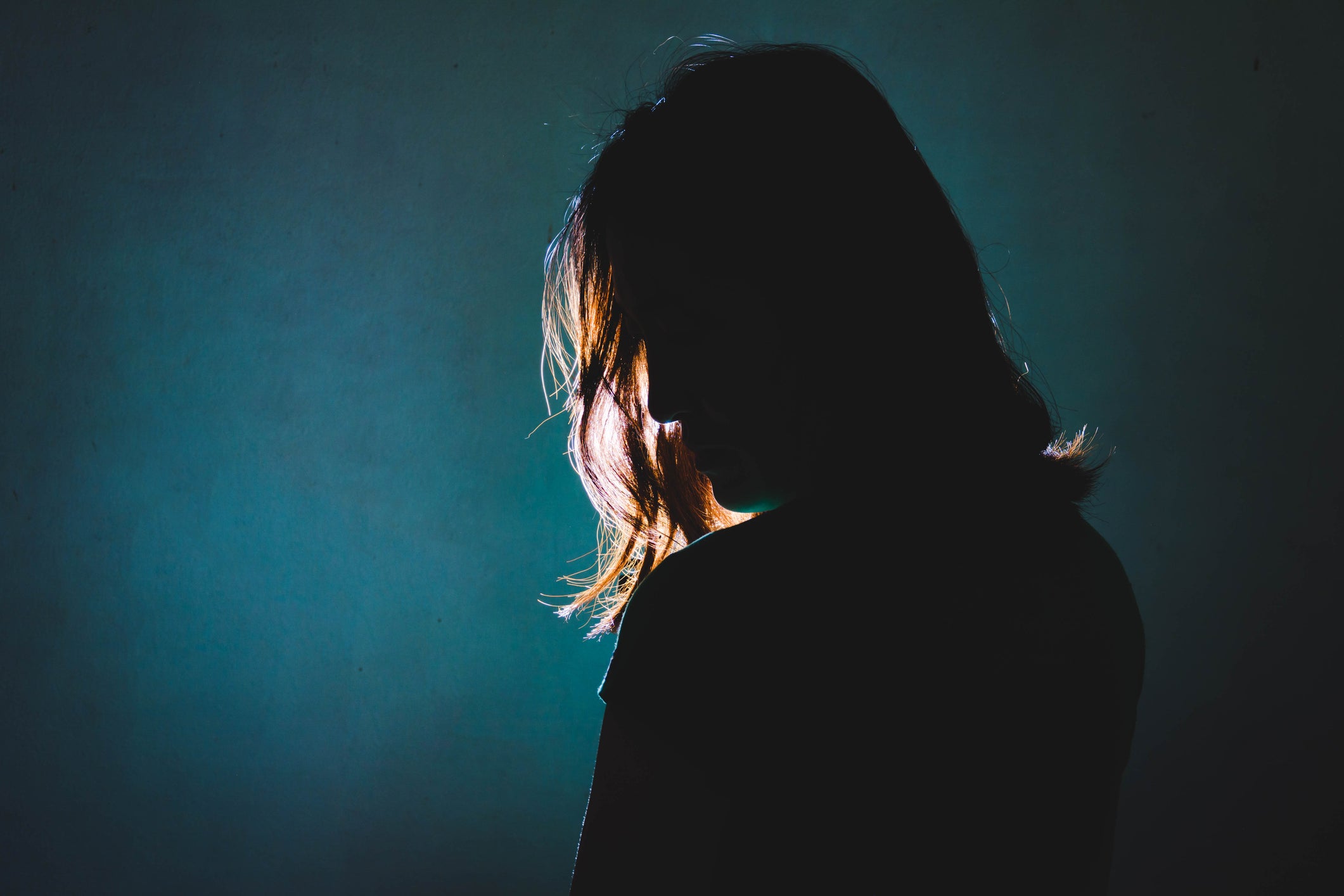Police Me Too is the movement working to expose domestic abuse of women by officers
Hannah Fearn meets the activist calling on all women who have suffered violence from a former or acting policeman to share their stories


Lily’s* biological father was a high-ranking police officer. A model citizen outside the home, inside he showed a very different face. He abused his daughter physically and verbally throughout her childhood.
“He choked me, beat me, dragged me down the stairs by my hair. He smashed my face into a plate. He would accuse me of things I didn’t do so he had an excuse to be violent,” she explains. “The more I cried the harder he hit me, he enjoyed it. He used to tell me I was lucky because he wasn’t coming into my room at night to rape me. I was under 10.”
Lily’s experience is shocking – but as a new campaign is proving, it is by no means unique. Quite the opposite. Lily’s is just one of many women’s stories being shared by the Police Me Too movement, launched following the kidnap, rape and murder of Sarah Everard by off duty police officer Wayne Couzens in March, to bring together women who have suffered at the hands of the very men supposed to uphold the law.
Police Me Too was launched earlier this month by Freya*, a woman who survived years of mental, physical, sexual and financial abuse from her former husband, then a serving police officer, before she left him in 1999. Now she is calling on all women who have suffered domestic or familial violence from a former or acting policeman to share their own story with the campaign, to highlight how widespread the problem is.
“If Sarah Everard had just been kidnapped and raped and she went to the police, we would never have heard her name. The only reason that they have had to act in this case is because there was a body,” she tells The Independent. "What about the women still living? There will be hundreds, if not thousands, out there who have been abused by the police and the police cover it up.”
Inspired by the Everyone’s Invited – the website launched by activist Soma Sara, on which girls and women told their of their experience of past and present sexual harassment and abuse at UK schools – Police Me Too gathers the personal histories of women who have been abused or attacked by officers in their private lives in one place. Almost 50 women have already come forward from across the country, and tens more are doing so each day – including some from female officers who met their assailants at work.

Women are finally speaking up because they can do so in confidence via the campaign. “This is safe, it’s anonymous. It’s giving them an opportunity to speak,” says Freya. “We need the numbers to show that it’s across the country and the decades, it’s right across the force. There are so many of us.”
Stories submitted to the campaign all share the same hallmarks: men who are paid to uphold the law and protect vulnerable people doing the very opposite behind closed doors.
One woman, posting on the site under the name Norma, says that while she was still at school, she was groomed and sexually abused by a 47-year-old married man. “The man dressed like a police officer and carried handcuffs in his bag on his way to work. He told me he was a court guard. Last year I discovered he was actually a police officer,” she writes. Almost 20 years later Norma reported the man, and at first police were “excellent” in their response. But then things changed. “I can pinpoint exactly when they turned against me. It was when the investigating officer knocked on the man’s door. A few nights later the Investigating Officer turned up at my home with another police officer… They told me they were dropping the case because I hadn’t reported anything criminal. I have tried everything I can to report the corrupt officers who protected my abuser but it’s impossible.”
Another, Hope, writes that she was married to a serving officer for nine years. “He would initiate sex whilst I was asleep and claim I had said it was okay,” she reports. “He was aggressive and would throw things at me in anger if he had a bad day, or if things weren’t going his way.”
I describe them as the mafia, and so do other victims. We’re all talking about the same feeling of the closing of ranks
One unnamed woman describes how she was raped at just 16 by the policeman father of her 17-year-old boyfriend while he gave her a lift home. “He said it was the best sex he’d ever had. I was young, naive and very confused. But I’d not consented,” she writes. “He dropped me at home afterwards, coming in to see my parents and shaking hands with my father. When he left, they were profuse in their praise for him. That wasn’t the only time it happened. The next time was in the house and another on a walk.... He wrapped it up in flattery and compliments, but it wasn’t consensual. I had no choice.”
Freya’s aim in telling these women’s stories is to demonstrate that abusive behaviour is endemic within the police force. She describes how she spent decades as the victim of this kind of whitewashing after she tried to expose her own ex-husband’s abuse to the force he served on. Not long before she left him, she called 999 after he pulled a knife on her during an argument. Police arrived and gave her husband the advice to count to 10 and go for a walk to cool down.
“They knew who he was and closed ranks. When I managed to leave, I had things happen like senior officers saying, ‘we will protect him’. These men were inspector rank,” she says. After she left her abusive marriage, local police officers began to harass her future partners, trailing them while on dates, and pulling their cars over on the road to intimidate them.

“I describe them as the mafia, and so do other victims. We’re all talking about the same feeling of the closing of ranks,” Freya says.
Freya is one of 19 survivors of domestic violence by police officers who have together taken out a super-complaint against the police force, lodged on their behalf by the Centre for Women’s Justice (CWJ). A verdict on that complaint is expected to be shared in the spring, and she has already been awarded the Emma Humphreys Memorial Prize for that work. But whatever the result Freya wanted to find new ways to bring women together to expose how widespread such abusive behaviour is.
It’s not one place, it’s not one police force, it’s not about recruitment. This has been going on for decades
Other nations, including New Zealand and the US, have carried out research to demonstrate the magnitude of the problem. But in the UK, so far, there has been no equivalent. The Police Me Too movement wants to pile on pressure for a full statutory public inquiry into policing and abuse after the death of Sarah Everard, an inquiry into only the Metropolitan Police would be a “whitewash”, Freya says.
When contacted by The Independent about Police Me Too, a spokesperson for the National Police Chiefs’ Council (NPCC) said: “The vast majority of police officers and staff fulfil their duties to the highest standard, but we recognise that there is a tiny minority who conduct themselves in a way which grossly undermines public trust and confidence in policing. We take all allegations against officers and staff seriously, whether that is made by colleagues or by a member of the public.”
“It is down to everyone in policing to maintain the highest standards of integrity and professionalism, and to report any colleagues who fall short of those standards.”
But for Freya, this is not a small problem. “With Sarah, [the police] are already distancing themselves from it. No, sorry, we’re talking about a serving police officer who murdered someone,” she says. “We have stories from 50 years ago, we’ve got stories from this year. It’s not one place, it’s not one police force, it’s not about recruitment. This has been going on for decades.”
*Names have been changed
Join our commenting forum
Join thought-provoking conversations, follow other Independent readers and see their replies
Comments
Bookmark popover
Removed from bookmarks